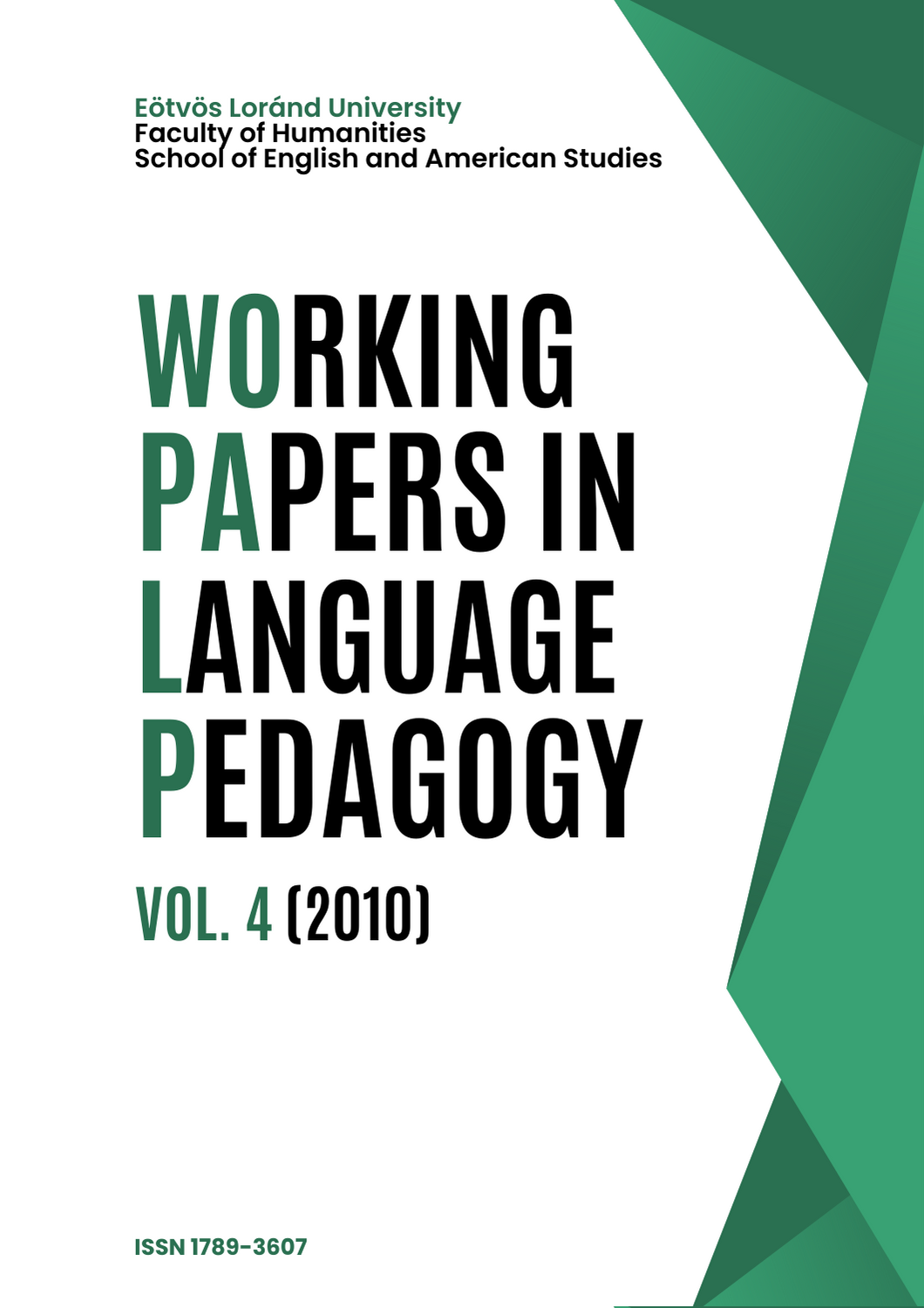Teacher Talk in The ESP Classroom – The Results of a Pilot Observation Study Conducted in the Tourism Context
DOI:
https://doi.org/10.61425/wplp.2010.04.39.58Keywords:
classroom observation, teacher talk, English for Specific Purposes, the use of the mother-tongue, questioning techniqueAbstract
The present research was conducted as a pilot observation study focusing on three aspects of teacher talk in a college level L2 tourism class. The relevance of the investigation lies in the fact that teaching ESP in Hungary is gaining more and more importance. Teacher talk has been widely investigated in EFL classrooms but little is known about the characteristics of teacher and student talk in the ESP context. Firstly, the investigation aims to shed light on the ratio of teacher talk to student talk, secondly, it aims to gain an insight into the role of the mother-tongue in the teaching process, and thirdly, it purports to characterise the questioning technique of the participating teacher in her efforts to elicit meaningful utterances from her students. The findings indicate that the amount of teacher and student talk in the ESP classroom is similar to empirical data obtained in L2 EFL settings. The use of the mother-tongue was perceived to be exaggerated and in some instances unjustified. Results concerning the use of referential and display questions coincide with data obtained in EFL classrooms; communication was maintained by posing display questions with only a few occurrences of referential ones. It is believed that the results of the study will enable ESP teachers to plan their classroom talk more consciously and obtain a more critical stance when analysing their own talk.




